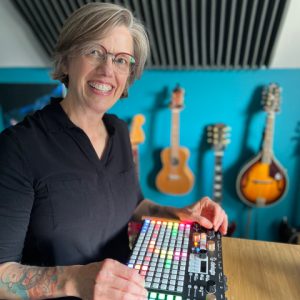
CK Barlow
Composer and multi-instrumentalist CK Barlow divides her time between producing music for television, helping manage a music-publishing company, and improvising with electronics.
Founded in 1967 by composer Jean Eichelberger Ivey, the Peabody Electronic Music Studio was the first electronic music program at any American conservatory. Now more than 50 years later, Peabody Computer Music continues to lead as one of the most vibrant and forward-looking music technology programs in the nation.
Peabody Computer Music offers both Bachelor’s and Master’s degrees, combining the rigorous musical and academic curriculum of the Peabody Conservatory with specialized courses in Electronic Music and Music Technology.
The robust and varied Computer Music curriculum offers courses ranging from the use of technology in creative music-making to the development of new electronic music technologies that will shape future musical culture. Classes focus on Electronic Music Composition and Production, Analog and Digital Synthesis, Hip Hop Production, Computer Music Programming, Surround Sound Mixing Techniques, Physical Computing, Audio-Visual Composition, and more.
A highlight of our curriculum is weekly composition/technology private meetings with faculty advisors to help students develop their own personal artistic voice and skill-set in music technology.
Students have 24 hour access to our state-of-the-art composition, mixing, and recording studios, which house a wide array of microphones, pre-amps, and mixing systems, as well as computers which are loaded with the latest software packages.
Reflecting our inclusive musical aesthetic, the Department Recital Series and the student-run VVaves Concert Series provide performance opportunities for students interested in presenting all varieties of electronic music from works for instruments and electronics to dance music and hip hop, and from experimental electronic performance to multimedia works and more. Our two student ensembles, the Laptop Ensemble and Hip Hop Ensemble, augment the curriculum with additional performance and composition opportunities.
Learn more about the differences between the focuses of Computer Music, Music for New Media, and Recording Arts and Sciences.

Composer and multi-instrumentalist CK Barlow divides her time between producing music for television, helping manage a music-publishing company, and improvising with electronics.
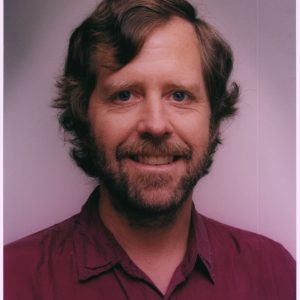
McGregor Boyle is active as a composer, performer, and music educator with a primary interest in digital media and computer applications to music composition and performance.
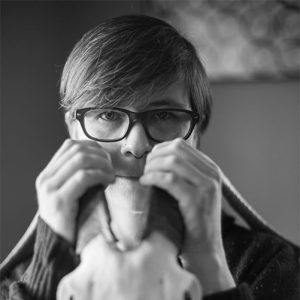
Lyn Goeringer is a composer, sound artist, improvisor, and performer who makes her own instruments and multi-media pieces that focus on the unusual and everyday within sound, video, and electronics.
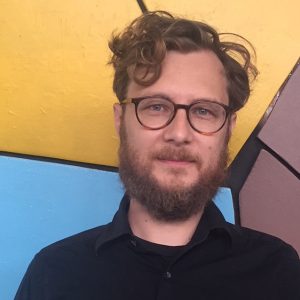
Composer, performer, and sound artist, Bryan Jacobs’ work focuses on interactions between live performers, mechanical instruments, and computers. His pieces are often theatrical in nature, pitting blabber-mouthed fanciful showoffs against timid reluctants.
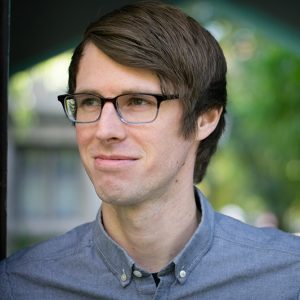
Ted Moore (he / him) is a composer, improviser, and intermedia artist whose work fuses sonic, visual, physical, and acoustic elements, often incorporating technology to create immersive, multidimensional experiences.
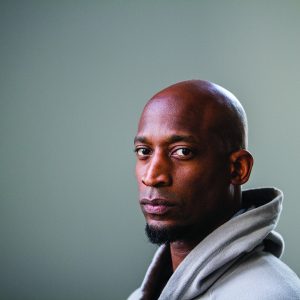
Wendel Patrick has been referred to as “David Foster Wallace reincarnated as a sound engineer” by Urbanite Magazine and as “wildly talented” by the Baltimore Sun.
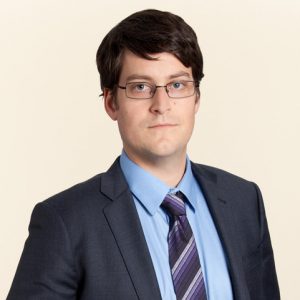
Sam Pluta is a composer, electronics performer, and sound artist. Though his work has a wide breadth, his central focus is on using the computer as a performance instrument capable of sharing the stage with groups ranging from new music ensembles to world-class improvisers.
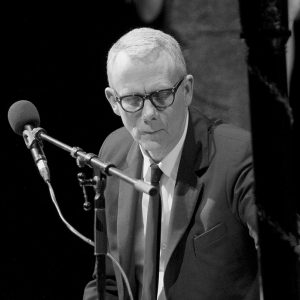
Martin Schmidt is a composer, sound artist, video artist, and one-half of the internationally acclaimed duo Matmos, which has made albums and/or shared the stage with Bjork, Robert Wilson, Terry Riley, Zeena Parkins, Dan Deacon, Sō Percussion, Marshall Allen, the Kronos Quartet, and many more.
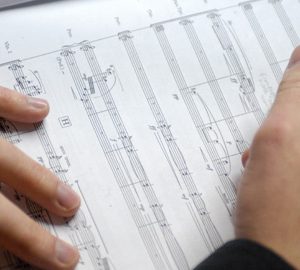
Offering degrees at the Bachelor’s, Master’s, and DMA levels, Peabody Composition provides rigorous professional training to help young composers discover and nurture their own expressive voices. Private weekly lessons are supplemented by departmental seminars with distinguished visiting composers, scholars, new music ensembles, and soloists. Performance opportunities include departmental recitals, readings with Peabody’s large ensembles and chamber musicians, and the staging of complete opera scenes. Additional opportunities include an ongoing reading session program with the Baltimore Symphony Orchestra under Music Director Marin Alsop, and readings and performances of student works by leading new music soloists and ensembles. All recitals and readings are professionally recorded. Composition majors also benefit from Peabody’s extensive library of music as well as Baltimore’s ever-growing and diverse new music scene.
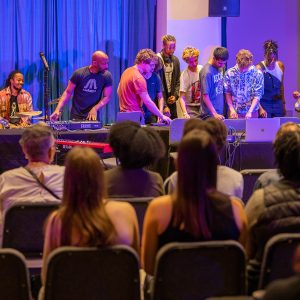
The four-year Bachelor of Music in Hip Hop combines the resources and strengths of Peabody’s industry leading Music Engineering and Technology programs with the Conservatory’s long history of excellence in performance training. The department is headed by award-winning composer, producer, beatmaker, pianist, and professor Wendel Patrick. Following the one-on-one studio model of a traditional conservatory education, you will develop your skills in lessons with a private instructor—turntable majors will study with a world-class turntablist; Rap majors with a chart-topping emcee.
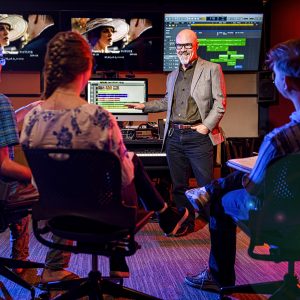
Offered as four-year Bachelor of Music and two-year Master of Music degrees, students in Music for New Media: Film and Game Scoring study the art and craft of composing music for film, TV, games, and other media. Through additional coursework in game audio implementation, mixing, sound design, music theory, instrumentation/orchestration, keyboard studies, MfN students will be prepared for a career as a media composer in addition to numerous related fields in the industry. Compositions for traditional instruments are scored through software emulation and virtual Instruments, with many opportunities to record and mix music in Peabody's world-class professional recording studios and have their music performed by the Peabody Symphony Orchestra.